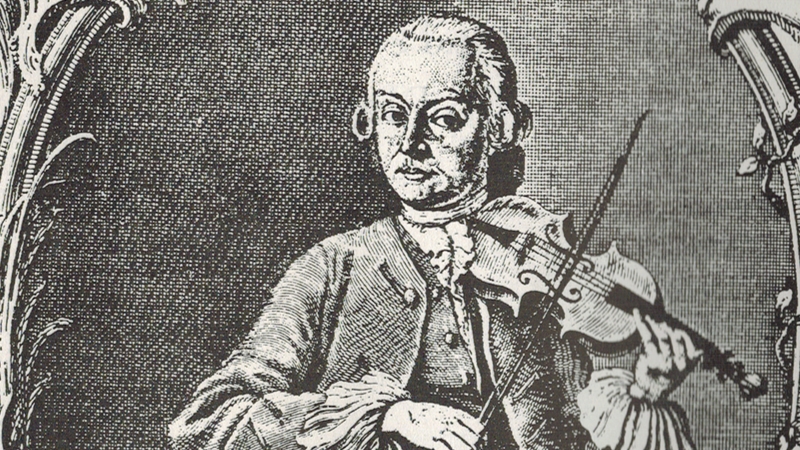Translator’s note regarding the term ‘affect’
There is no English noun of today which quite conveys the meaning of ‘Affect’ as employed by eighteenth-century German writers on music.
The corresponding English term of the period was ‘the passions’; but this again does not quite mean to the present-day reader what it did to the English poets and aestheticians of that epoch.
The notion underlying the doctrine of the ‘Affecte’ was that each piece of music expressed, and could only express, one ‘passion’, one ‘movement of the soul’—tenderness, grief, rage, despair, contentment, etc.—and Leopold Mozart is at pains to insist that before a player can perform a piece of music in accordance with the composer’s intention he must understand the ‘Affect’ from which the music originated.
— Editha Knocker. Translator of ‘A treatise on the fundamental principles of violin playing’.
Bowing and the expression of affect
§ 3: Every figure can be varied in many ways by means of bowings, even if it consists of but few notes. These variations are usually indicated by a sensible composer and must be observed exactly in the playing of a piece. …
If it be a solo, then the composer wishes thereby to express his affects, or at the least, to make desirable variety. The triplets, too, are subject to such changes, where the bow is responsible for all that is needed for the expression of this or that affect, without going against the nature of a triplet.
— Leopold Mozart. ‘Versuch’. Chapter VI: Of the so-called Triplet.
§1: That bowing can greatly vary a phrase we have already become in some measure aware in the previous chapter. The present chapter will convince us entirely that the bowing gives life to the notes; that it produces
- now a modest,
- now an impertinent,
- now a serious or playful tone;
- now coaxing, or grave and sublime;
- now a sad or merry melody;
and is therefore the medium by the reasonable use of which we are able to rouse in the hearers the aforesaid affects.
I mean that this can be done if the composer makes a reasonable choice; if he selects melodies to match every emotion, and knows how to indicate the appropriate style of performance suitably.
Or if a well-skilled violinist himself possess sound judgement [good taste] in the playing of, so to speak, quite unadorned notes with common sense, and if he strive to find the desired affect and to apply the following bowings in the right place.
— Leopold Mozart. ‘Versuch’. Chapter VII: Of the many varieties of Bowing: I. Of the varieties of Bowing in even notes.

Good Execution
§ 3: To read the musical pieces of good masters rightly according to the instructions, and to play them in keeping with the outstanding characteristics of the piece, is far more artistic than to study the most difficult solo or concerto.
For the latter, but little sense is necessary. And if one has enough wit to think out the appoggiature, one can learn the most difficult passages for oneself if energetic practice be added.
The former, on the contrary, is not so easy. For, not only must one observe exactly all that has been marked and prescribed and not play it otherwise than as written; but one must throw oneself into the affect to be expressed and apply and execute in a certain good style all the ties, slides, accentuation of the notes, the forte and piano; in a word, whatever belongs to tasteful performance of a piece; which can only be learnt from sound judgement and long experience.
§ 7: Before beginning to play, the piece must be well looked at and considered.
The character, tempo, and kind of movement demanded by the piece must be sought out, and carefully observed whether a passage occurs not therein which often at first sight seems of little importance, but on account of its special style of execution and expression is not quite easy to play at sight.
Finally, in practising every care must be taken to find and render the affect which the composer wished to have brought out; and as sadness often alternates with joy, each must be carefully depicted according to its kind.
In a word, all must be so played that the player himself be moved thereby.
— Leopold Mozart. ‘Versuch’. Chapter XII: Of Reading Music correctly, and in particular, of Good Execution.
